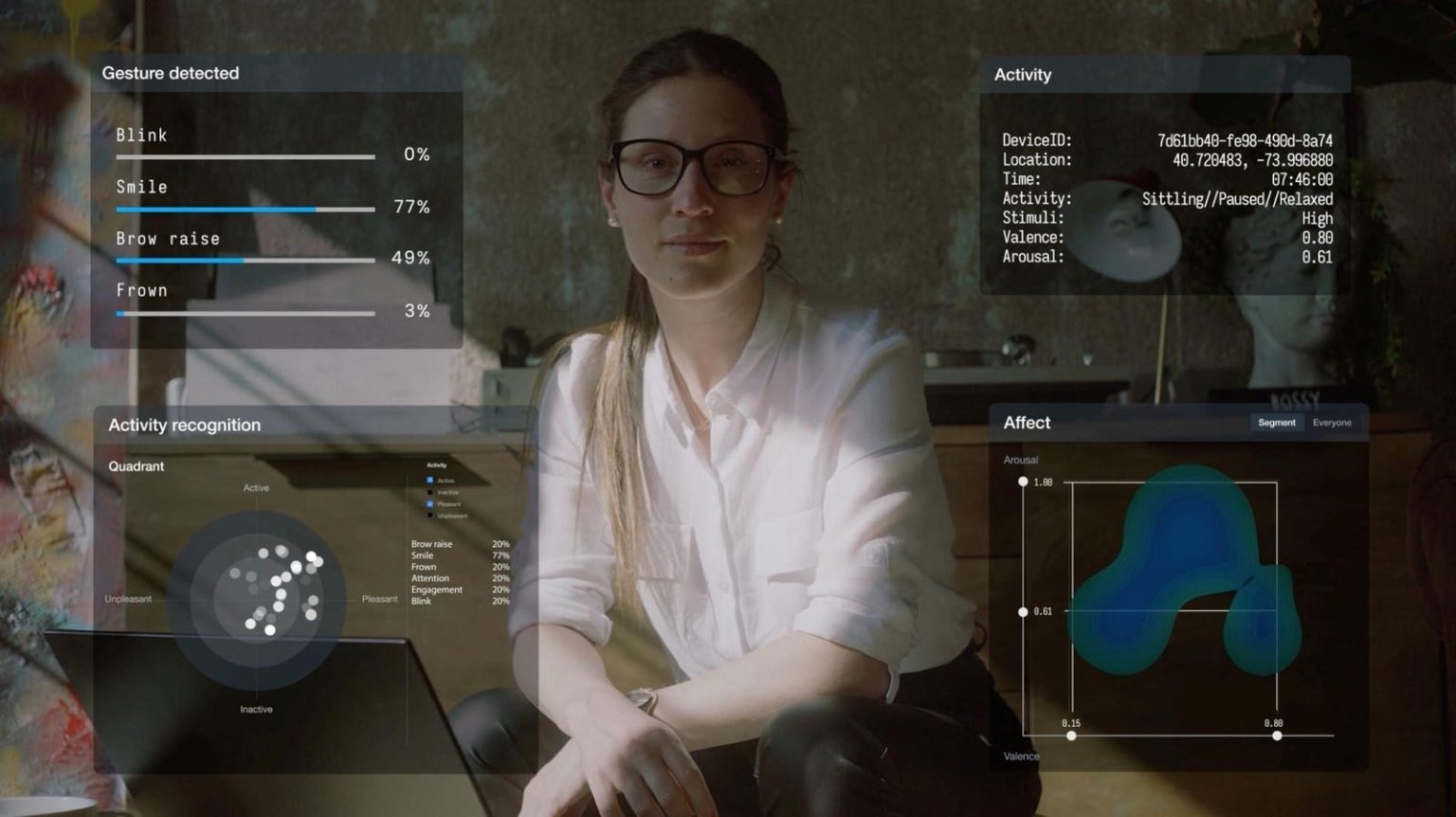InnovationRx is your weekly digest of healthcare news. To get it in your inbox, subscribe here.
This week, U.K.-based startup Emteq Labs announced the launch of their emotion-sensing eyewear, Sense. The technology, which looks like a pair of glasses, is embedded with sensors that can detect facial movements. Combined with the company’s AI analysis software, it said these details can provide insight into facial expressions, physical activity, eating habits and other metrics.
One of the first applications the company is aiming at for its tech, founder and chief science officer Charles Nduka told Forbes, is to get treatment for depression and other mental health issues “out of the 18th century” where a lot of what caregivers know about their patients is just from self-reported data. “Mental health needs to move into the objective phase” where data doctors rely on is clearer, he added, likening it to glucose monitors for diabetes patients.
But mental health isn’t the only area where the company thinks its product can be useful, CEO Steen Strand told Forbes. It could also be used to monitor eating habits to help people manage weight, assist with physical therapy for those suffering from facial paralysis and more. The company has been collaborating with neuroscience researchers with the glasses, Nduka said, and as more data is collected, it intends to potentially move them through the regulatory process to be used as medical devices for certain conditions.
For now, Nduka said, the launch to customers will help the company to determine what some of those best applications are. “We’re excited about the opportunity to get it out there to the world and develop new use cases and new data,” he added.
Sepsis Causes Over 350,000 Deaths Annually. This Lab Test Can Reduce That By A Third.
Every year, over 1.7 million Americans will experience sepsis, which occurs when the immune system is unable to fight off an infection and instead begins an extreme response where it, in the words of Cytovale CEO Ajay Shah, starts “carpet bombing everything” and attacking the body’s own organs. But there hasn’t been a good way for doctors to quickly figure out what’s happening.
Shah’s company has developed the first rapid lab test for sepsis that’s been cleared by the FDA, called IntelliSep. The technology is already in place in six hospitals in two health systems, one of which has reported a reduction in sepsis mortality of over 30% after a year of incorporating the test into its practice. That’s a huge number, given that over 350,000 Americans who develop sepsis die every year, according to the CDC, making it the third leading cause of death in hospitals.
Read more here
Pipeline & Deal Updates
Chemo Side Effects: Jaguar Health has begun sales of Gelclair, an FDA-approved treatment for moral mucositis, a common side effect of chemotherapy where the mouth’s mucous membranes are inflamed.
Venture Capital: KdT Ventures announced that it has closed its fourth fund at $100 million. The investment fund will be focused on early-stage companies deploying cutting edge tech across different healthcare verticals.
Lung Cancer: The FDA has approved Novocure’s Optune Lua for the treatment of metastatic non-small cell lung cancer concurrently with other treatments. This is a portable device that creates electric fields which can cause cell death in tumors.
Breast Cancer: The FDA approved inavolisib, marketed by Genentech as Itovebi, in combination with other drugs as a first-line treatment option for people with a common type of metastatic breast cancer.
AI For Patients: Parakeet Health announced it has launched a generative AI voice platform for patient communications alongside a $3 million seed funding round. The platform aims to be used as an agent to help patients schedule appointments, query prescription status and other tasks.
AI For Doctors: Suki, which has developed an ambient AI system that automatically fills out medical records during a patient visit, announced it has raised $70 million in new investment backing. Meanwhile, competitor Abridge announced it has partnered with Wolters Kluwer Health to incorporate the latter’s clinical support solution UpToDate into its AI-powered platform.
Digital Health: Digital health startup Glooko announced that it has raised a $100 million series F round to continue growth and expansion of its products.
Truepill’s Sid Viswanathan Is Back With A New Pharmacy Startup Focused On HIV
Sid Viswanathan, cofounder of tech-enabled pharmacy Truepill, which was once worth more than $1 billion before falling back to earth, is back with a new healthcare startup. The new company, called Alchemy, is working to increase access to HIV medications by building and managing in-house pharmacies for community clinics.
After operating in stealth for more than a year, the San Francisco-based startup is launching publicly after raising $31 million in seed funding, led by venture firm Andreessen Horowitz, Viswanathan told Forbes. Magic Johnson, the NBA superstar who was first diagnosed with HIV in 1991, is also an investor.
To date, the startup has set up pharmacies inside 15 clinics across the country that serve a large HIV and hepatitis C patient population. Alchemy sets up and runs the pharmacies, and receives a percentage of revenue from them. It works with the clinics to access a federal program to get medications at lower cost, helping their patients get and stay on their medications.
Read more here.
Other Healthcare News
Walgreens Loses Another $3 Billion And Plans To Close 1,200 Stores
TikTok Is Rejecting Ads About IVF, Egg Freezing And Fertility Services, Founders Say
New Cervical Cancer Treatment Regimen Cuts Risk Of Death By 40%
UnitedHealth Group Profits Eclipse $6 Billion As Cyberattack Costs Subside
More Listeria Recalls: What To Know As Nearly 12 Million Pounds Of Meat Recalled
Across Forbes
What Else We are Reading
The Staggering Success Of Vaccines (Scientific American)
Is it time to freak out about bird flu? (Stat)
Your diet can change your immune system — here’s how (Nature)
Read the full article here





